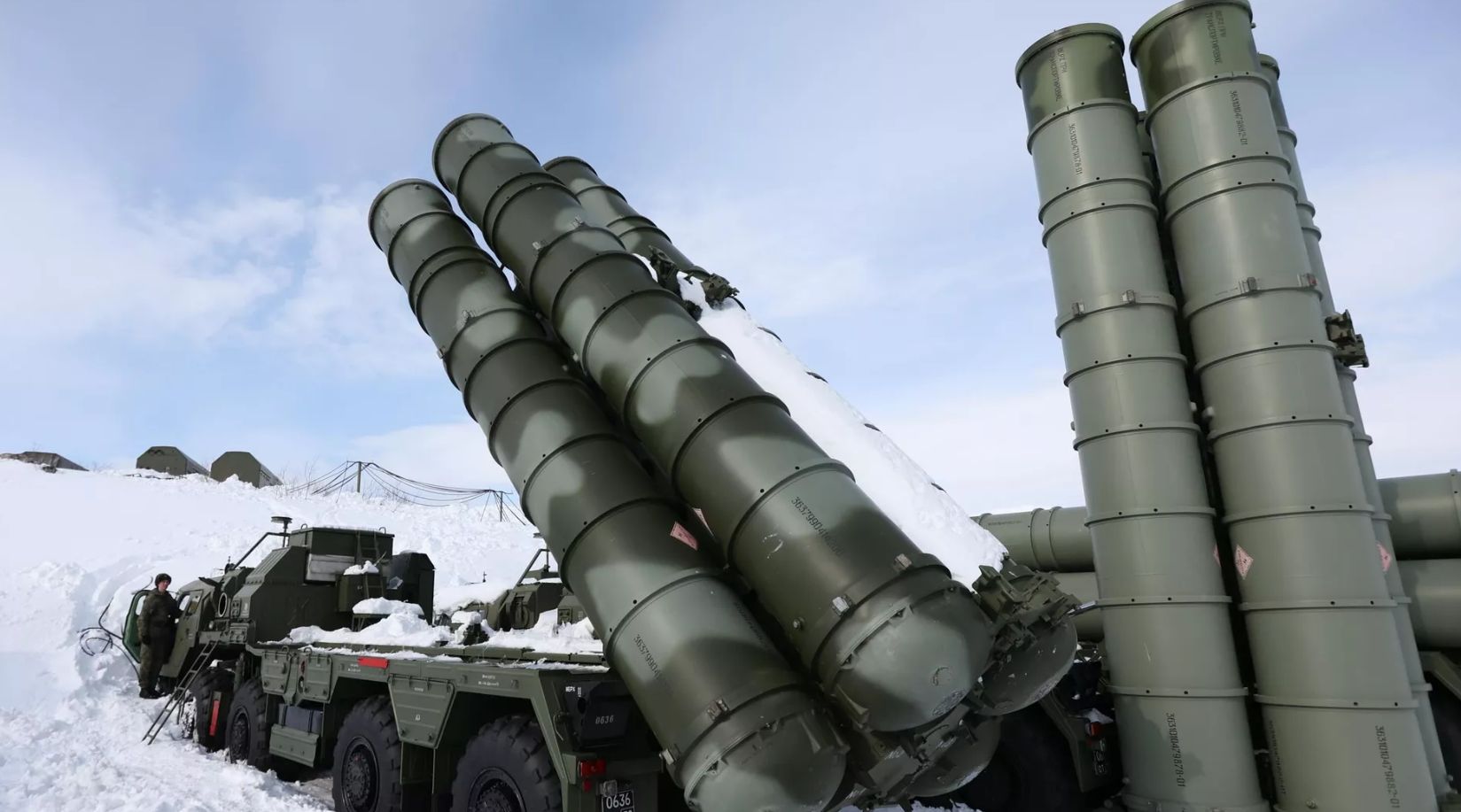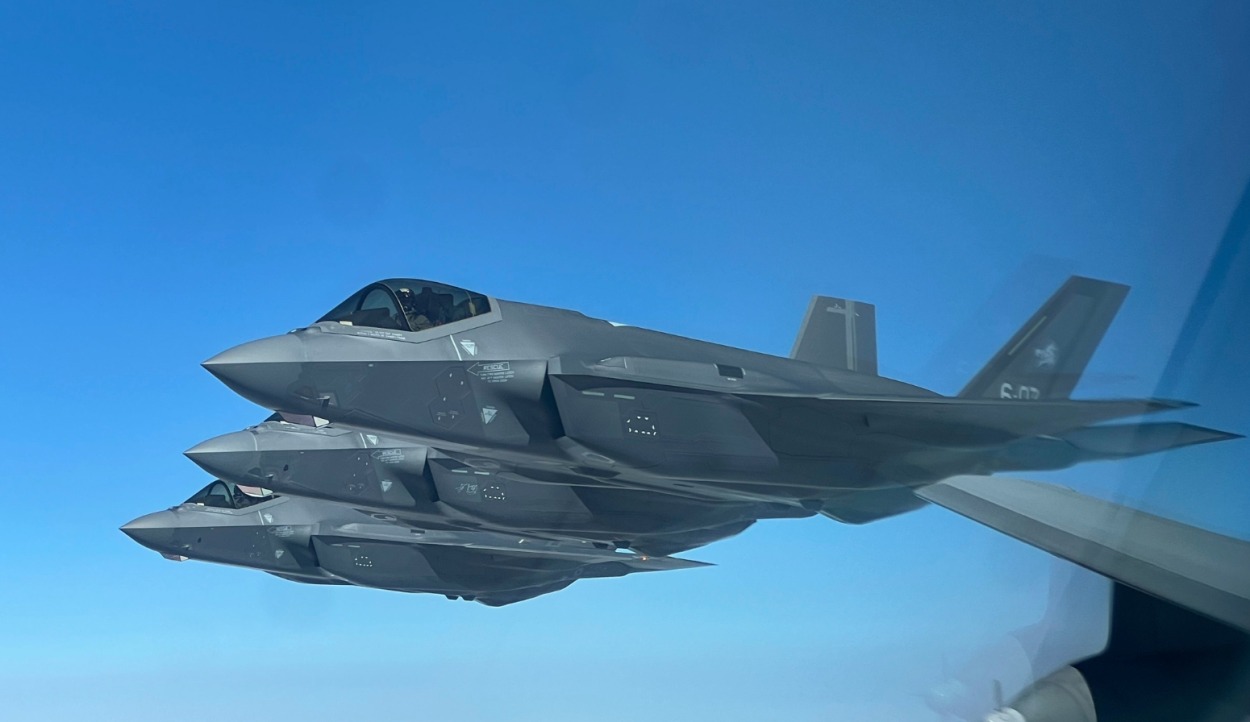Amidst the global discourse surrounding misleading claims that the United Arab Emirates had suspended its procurement of French Rafale aircraft, another wave of rumors emerged indicating that Turkey had opted to “box” its S-400 air defense systems to make way for the procurement of F-35 stealth fighters.
A report that recently appeared in the Cumhuriyet daily said that Turkey had allegedly offered to store Russian-manufactured S-400 air defense systems “in boxes” while suggesting to Washington that arrangements for inspections should be made.
According to the claims, the move was intended to convince the US to lift a ban on Turkey’s purchase of the F-35 Lightning II fifth-generation stealth fighter.
Following the publication of the report in a local Turkish outlet, it garnered significant attention from various media platforms, leading to extensive coverage. Certain reports indicated that this action might reflect Ankara’s readiness to compromise with the United States, particularly in light of Washington’s requests for Turkey to abandon these air defense systems.
However, on August 29, Turkish officials clarified that the country’s position on the S-400 air defense systems purchased from Russia remained unchanged. Unknown officials from the Turkish Defense Ministry said, “Our country’s need for air defense systems persists. In this context, the S-400 air defense system remains in the inventory of the Turkish Armed Forces (TSK).”
🇹🇷🇺🇸 Turkey Considers Sacrificing Russian S-400s for US F-35s
In a bid to re-enter the US F-35 fighter jet program, Turkey is reportedly willing to forgo activating its Russian S-400 missile defense systems. The US had previously excluded Turkey from the F-35 program after… pic.twitter.com/YvVzIdQrgm
— DD Geopolitics (@DD_Geopolitics) August 28, 2024
Interestingly, these fake claims were doing the rounds on the internet and gaining momentum on social media at the same time when another fake news regarding UAE’s cancellation of its nearly-$17 billion Rafale contract was generating a mass frenzy.
The controversy was set off with a doctored social media video—falsely linked to Al Jazeera—claiming that the UAE had decided to cancel its deal with France for 80 Rafale fighter jets. The report stated that the decision was based on a diplomatic fallout between the two countries following Telegram founder Durov’s arrest (Read a detailed EurAsian Times report about that here).
Perpetrators have fabricated a fake video purporting to be from Al Jazeera, claiming that the UAE has rejected a deal for 80 Rafale jets with France.
The disinformation campaign began around 8:00 PM Moscow time with a leak on certain dubious Telegram channels. From there, the… pic.twitter.com/VXWOOeFBfk
— Maria Dubovikova (@politblogme) August 28, 2024
In both instances, the assertions were later disproven, revealing the widespread nature of misinformation.
Having said that, Turkey nonetheless finds itself at a crossroads as it is faced with the dilemma of keeping the Russian S-400 air defense system or pursuing the acquisition of the F-35 from the United States, from which it was excluded following its purchase of the S-400 from Moscow.
Turkey Is Keeping, Not Boxing Its S-400
Turkey purchased four S-400 surface-to-air missile system divisions from Russia for US$2.5 billion. The Russian defense export agency, Rosoboronexport, declared in October 2019 that it had completed the delivery of the first division.
When Turkey first declared its intention to buy the S-400, the US opposed the arrangement, reasoning that it would jeopardize the F-35 program, of which Turkey was a crucial member.
Defying all warnings, Turkey and Russia finalized the S-400 purchase agreement in 2017. When Turkey accepted its first S-400 in 2019, the US sanctioned its defense sector and expelled the country from the F-35 program.
In essence, Turkey opted for the defensive S-400 rather than the offensive fifth-generation F-35 stealth fighter, which would have made it one of the few countries with that capability. Many analysts have raised doubts regarding its value, while others have characterized it merely as an obsession.

However, in the wake of its acquisition of Rafale fighter jets and the future acquisition of F-35s by its arch-rival Greece, Turkey has resuscitated the talks for a potential purchase of US stealth fighters. Surprisingly, the Pentagon appears to be reconsidering this idea, provided that the S-400 systems are eliminated.
In January this year, Acting Deputy Secretary of State Victoria Nuland stated that if Ankara can settle the S-400 issue to Washington’s satisfaction, the US “would be delighted to welcome Turkey back into the F-35 family?” Since then, several American authorities have reaffirmed that this position remains unaltered.
Ukraine Lands F-16s On Highway; Reports Says Threat Of Russian Strikes Makes Kyiv Modify Its Plans
That has not changed Turkey’s stance on its S-400s. As Turkish Defense Minister Yasar Guler stated last year, the S-400 surface-to-air missile systems that Turkey bought from Russia will remain in the army’s stockpile and be used as necessary.
Guler said, “The S-400 is a defensive weapon. If we are attacked, won’t we use the weapon in response? Our army knows on a professional level what to do and how to do it. If a situation that requires defensive weapons arises, then people who have questions about these weapons will see how the S-400 or our other air defense systems will be used.”

Turkey has been negotiating with Washington to acquire 79 upgrade kits and 40 Block-70 F-16 fighter jets. The sale was approved earlier this year after Turkey ratified Sweden’s NATO bid.
When asked earlier this month if Turkey intended to return to the F-35 program, Defense Minister Yaşar Güler replied that discussions about the issue were still ongoing between Ankara and Washington.
A former Turkish minister, Cavit Caglar, suggested recently that Turkey should get rid of the S-400s by selling them to a third country: either India or Pakistan.
However, the Recep Tayyip Erdoğan administration has not heeded these calls from inside or outside Turkey and maintains the same stance: keeping the S-400 while negotiating for the F-35.
- Contact the author at sakshi.tiwari9555 (at) gmail.com
- Follow EurAsian Times on Google News




